MercoPress. South Atlantic News Agency
Tag: Maracana stadium
-
Monday, April 21st 2014 - 06:35 UTC
Uruguay, team and country are unified behind coach

The following piece was published by the NYT 18 April edition and is dedicated to Uruguay's football tradition and history. Uruguay's population is only 3.4 million but has an incredible record in world and regional cups victories, both with its national team and in clubs' competitions.
-
Saturday, April 12th 2014 - 08:12 UTC
Police and squatters clash in Rio do Janeiro next to the Maracana stadium
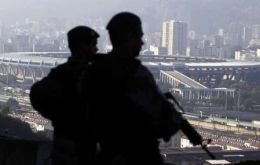
A dozen people were hurt and 27 arrested Friday in clashes between police and some of the roughly 5,000 squatters occupying a vacant industrial property in Rio do Janeiro, Brazil's second-largest city. Militants among the squatters set fire to several vehicles including a police patrol as they sought to remain on the site in the impoverished Engenho Novo neighborhood just steps away from the iconic Maracana stadium.
-
Monday, April 7th 2014 - 06:05 UTC
Army occupies favela in Rio because police was unable to retain control
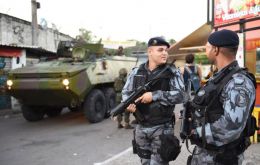
With only 68 days to the World Cup some 2,700 Brazilian troops seized control Saturday of the Mare favela, shantytowns complex, which is considered Rio de Janeiro's last major drug-gang stronghold and located in a strategic area for security reasons: a through area for the city's airport and the Maracaná stadium.
-
Thursday, February 20th 2014 - 10:27 UTC
Scolari wants to banish the ghosts of the 1950 when Brazil was beaten by Uruguay
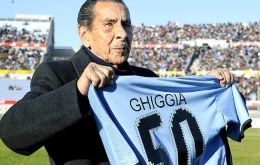
Coach Luis Filipe Scolari says he wants Brazil to banish the ghosts of 1950, when his country last hosted the World Cup and lost the final in a defeat against neighboring Uruguay that has haunted them ever since.
-
Friday, December 6th 2013 - 06:38 UTC
Maracana, July1950, when Uruguay silenced 200.000 Brazilian fans at the Cup's final
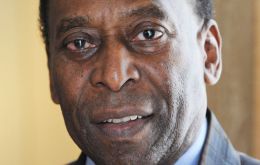
Pele, the only person to win three World Cups as a player, said Brazil will enter next year’s tournament with more humility than when the country last hosted soccer’s greatest event in 1950. On 16 July that year Brazil was shocked 2-1 by Uruguay in the final game at Rio de Janeiro’s Maracana stadium in what is considered as a national tragedy by some Brazilians.
-
Friday, December 6th 2013 - 06:30 UTC
FIFA nervous about Cup stadiums; Brazil argues brides are never on time for marriage
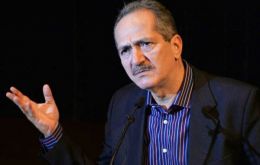
Brazilian government has brushed aside the importance of more delays in completing 2014 World Cup stadiums, saying that missing FIFA's deadline will not affect the country's ability to successfully host next year's tournament.
-
Thursday, November 7th 2013 - 21:51 UTC
Fears of 2014 World Cup disruptions resurface as major football conference is called off by Rio authorities

Fears about disruption to next year's World Cup have been raised after the key global football conference Soccerex was cancelled for disputed reasons. Soccerex organizers said Rio de Janeiro's state government had called off next month's event due to concerns about “ongoing civil unrest” in Brazil.
-
Friday, October 11th 2013 - 12:51 UTC
Over six million ticket requests for 2014 World Cup, with 70% from Brazil
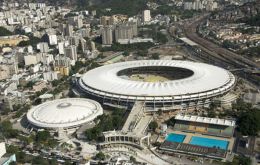
A total of 6,164,682 requests for tickets for the 2014 FIFA World Cup had been received when the initial application period ended on Thursday 10 October 2013, of which 70.86% were from Brazil, with the remaining 29.14% from the rest of the world.
-
Monday, June 17th 2013 - 07:01 UTC
Brazilian protestors clash over excessive expenditure in World Cup stadiums
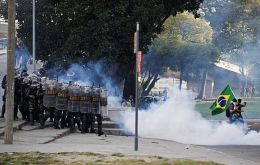
Police deployed tear gas and rubber bullets to disperse around 3,000 protestors from outside Rio de Janeiro's Maracana stadium ahead of the Confederations Cup match between Italy and Mexico on Sunday.
-
Monday, April 29th 2013 - 06:24 UTC
Brazil re-opens the refurbished iconic but still incomplete Maracana stadium

Rio de Janeiro's Maracana stadium, venue for next year's World Cup final and the spiritual home of Brazilian football, has re-opened with an exhibition match despite not being fully finished.
